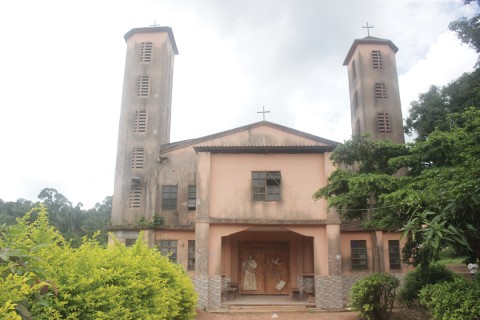Christian clergy are being kidnapped and killed in Nigeria
From farms to churches, no place feels safe.

On April 24, 2018, Joseph Gor and Felix Tyolaha were presiding over an early morning mass for about 50 parishioners at St. Ignatius Catholic Church in a village in north central Nigeria.
About 20 minutes into the service, gunmen, suspected to be from the largely Muslim Fulani ethnic group, stormed the parish and opened fire on the congregation. Nineteen people were killed, including both priests. The gunmen also razed houses, destroyed crops, and left the community in a state of chaos.
After the attack, bishops, priests, and thousands of residents demonstrated to protest the killings. The protesters called on the Nigerian government to arrest and prosecute the killers.




